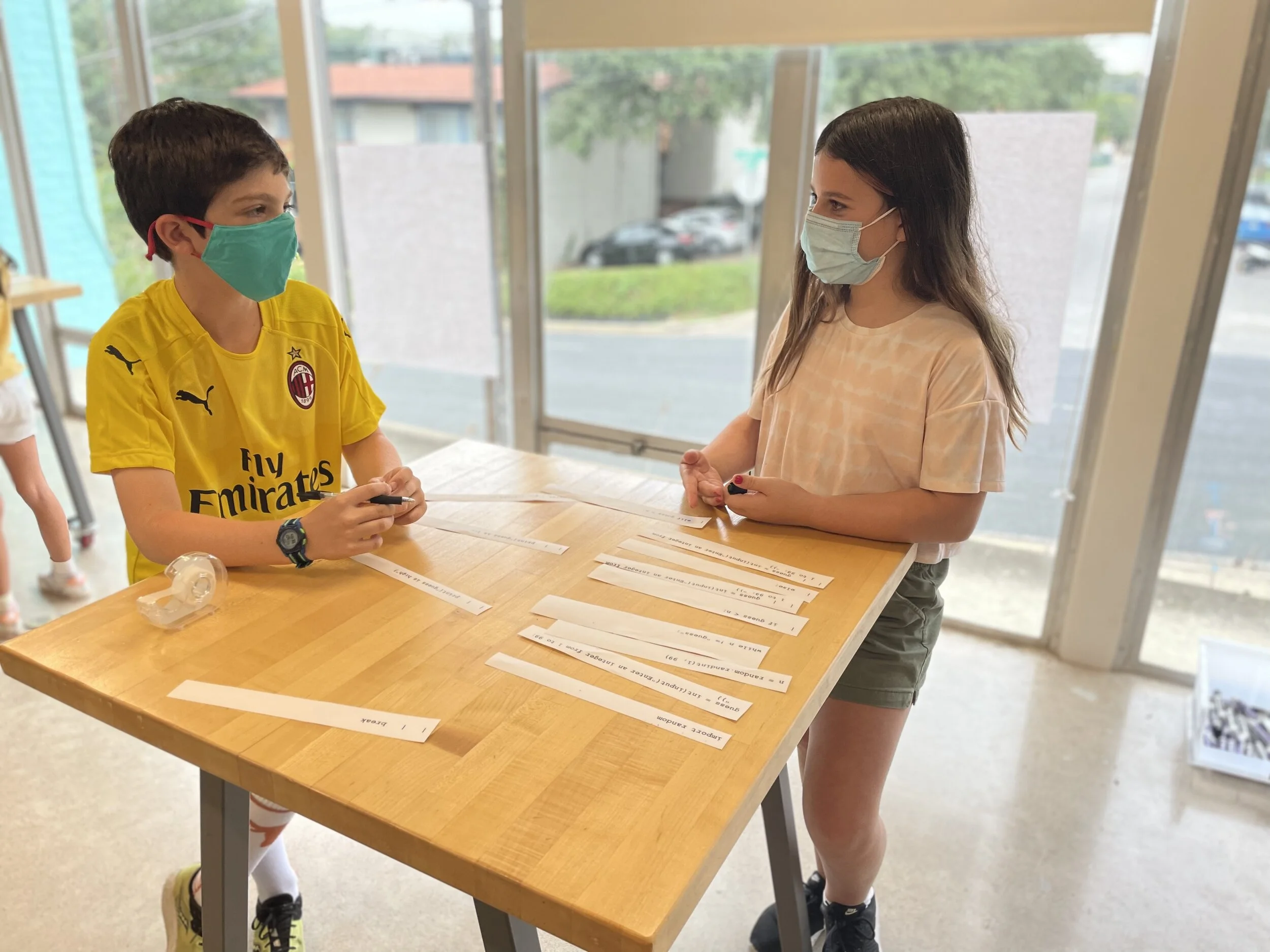Too often, people may conceive of the pedagogy of computer science in primary and secondary school as mainly the process of teaching learners to code. At Long-View, we try to approach the academic discipline of Computer Science, which began well before the invention of the personal computer, in an authentic way. As learners progress in computer science from first encounters to diverse applications of the discipline in later years, a throughline remains: we focus on thinking and learning, not syntax or language-specific features. To engage in computer science at Long-View is to learn the process of identifying the next best step in a computational problem, rather than memorizing a narrow set of solutions.
The arc of computer science at Long-View begins with ‘unplugged’ experiences (no computers necessary) that connect to big ideas….
Read More


